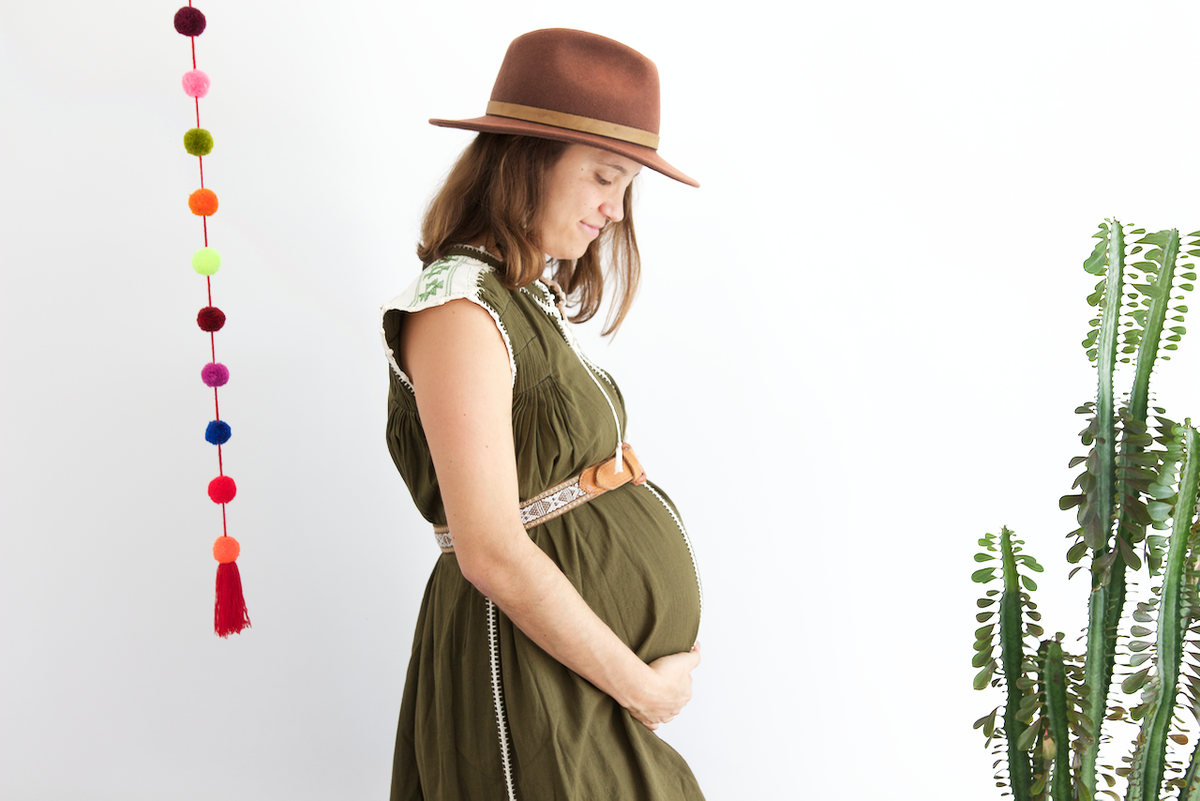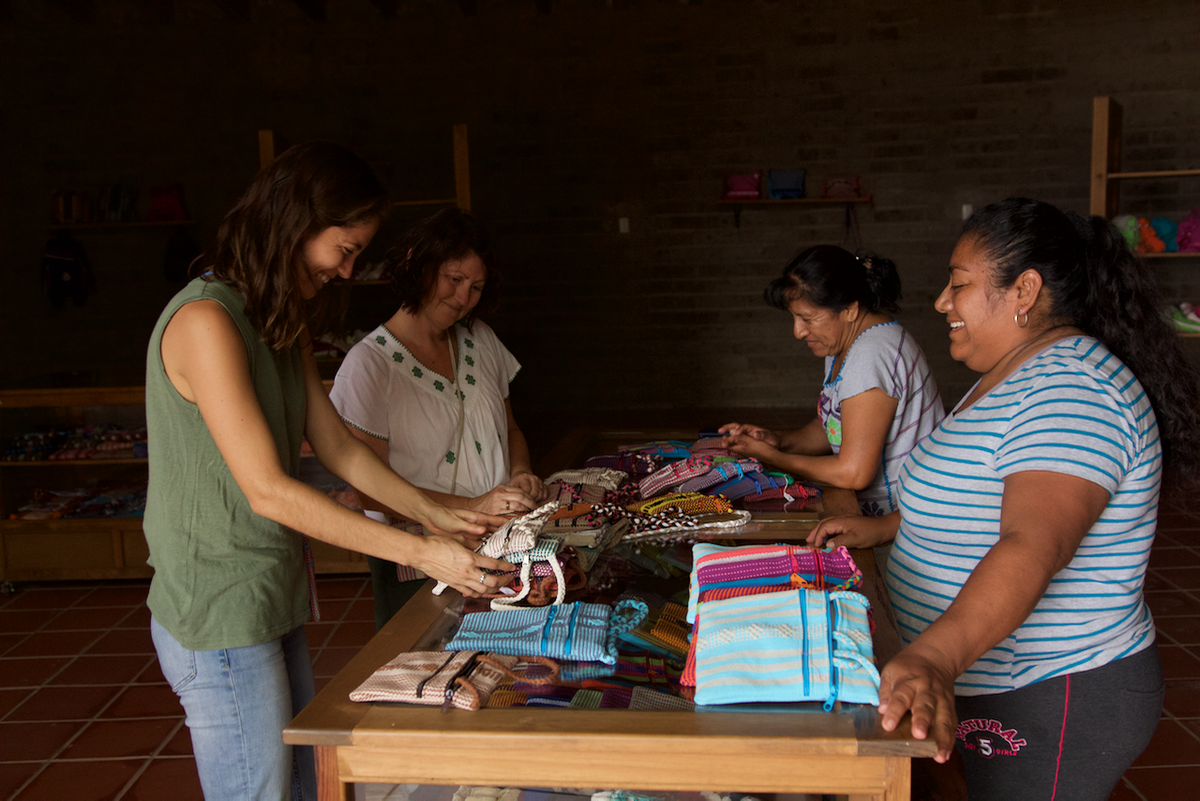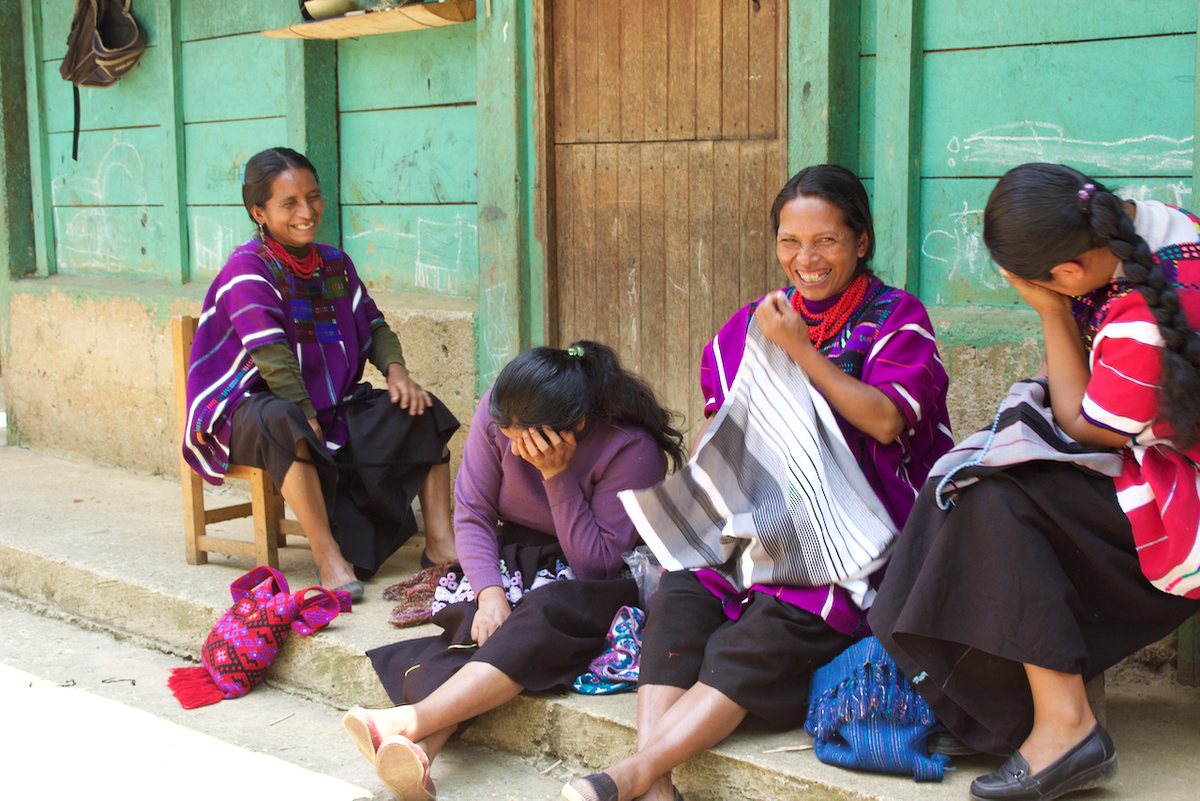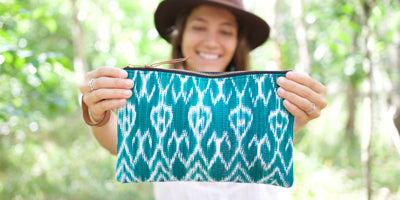The Fashion Revolution

Fashion Revolution Week started as a response to the devastating collapse of the Rana Plaza complex in Dhaka, Bangladesh on April 24, 2013. Within Rana Plaza were clothing factories where garment workers were subjected to sweatshop conditions in order to produce clothing for many international retailers. The eight story commercial building was not structurally sound despite the owner reporting it was safe. This resulted in the death of 1,134 people whilst leaving 2,500 people injured. All in the name of fashion. Fashion Revolution week urges the public to think about where their clothes are made and demand better for the people making them.
Last year during Fashion Revolution Week, Moacir and I were in San Cristobal de las Casas, Mexico working with our artisan partners at Jolom Mayaetik Women's Weaving Cooperative. It was here where we witnessed first hand the true value of ethical fashion.
One day Moacir and I drove out to a Maya village in the Chiapas Highlands. One of the co-op's members, Micaela translated for us as she spoke to the women about their experience working in the cooperative. They explained that through the sale of their textile designs they had the opportunity to earn an income, support their families, work from home while caring for their children and receive an education. They did this collectively because as a group they were stronger, could create more, grow more and help each other while distributing the income fairly. The cooperative was run by Maya women for Maya women, so each member had a voice.
I watched the women weave their designs in a courtyard of one of the members homes. They were all sharing conversations and meals while their kids ran around and played. This scene was very different to the devastating photos that I had seen of the Rana Plaza factory.
 Before starting Cielo, I worked for fashion retailers and over the years had become disturbed by the fast fashion culture. I had seen how disposable garments were, how everything came wrapped in sheets of plastic and how ranges were spat out weekly to appeal to the widespread consumerism. Every day I saw people spending mindlessly without any consideration for where the garment came from.
Before starting Cielo, I worked for fashion retailers and over the years had become disturbed by the fast fashion culture. I had seen how disposable garments were, how everything came wrapped in sheets of plastic and how ranges were spat out weekly to appeal to the widespread consumerism. Every day I saw people spending mindlessly without any consideration for where the garment came from.
What I've learnt since starting Cielo, is that you can continue to love fashion and care about those who make it, you simply have to change the way you shop. Although I'm still not perfect, I try as best as I can to purchase from small local businesses, ethical brands and buy vintage.
Here are just some of the highly talented artisans that we work with...

Anita, Margarita, Maria & Maria from Jolom Mayaetik Women's Weaving Cooperative, Mexico

Nayeli from San Cristobal de las Casas, Mexico

Liz & Elvia from Jolom Mayaetik Women's Weaving Cooperative, Mexico

Humberta & Betty from The Weaving Women of Santo Tomas Jalieza, Mexico

Juan & Silvia from Lake Atitlan, Guatemala

Betty from Madres Solteras (Single Mother's) Weaving Cooperative in San Juan la Laguna, Guatemala

Ingrid from Madres Solteras (Single Mother's) Weaving Cooperative in San Juan la Laguna, Guatemala

Victoria from Madres Solteras (Single Mother's) Weaving Cooperative in San Juan la Laguna, Guatemala

Felix & Artemia from Teotilan del Valle, Mexico

Memo from San Pedro Amuzgos, Mexico
If you would like to learn more about some of the artisans that we work with head to our Artisan Page or click this link to SHOP!
Remember to ask yourself "who made my clothes?" this Fashion Revolution Week and support brands who support the makers!
- Have a beautiful week, Skye.
Also in Our Journal

Versatile Designs For Before, During and After Pregnancy

Fashion Revolution 2020 - Meet Our Makers




